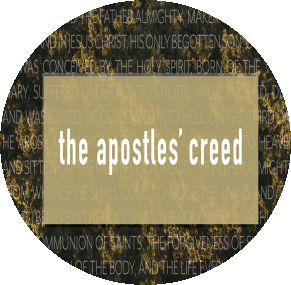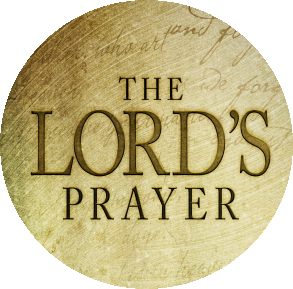I Believe In God
It must also be confessed that there is but on God, not many gods.For we attribute to God supreme goodness and infinite perfection, and it is impossible that what is supreme and most perfect could be common to many. If a being lack anything that constitutes supreme perfection, it is therefore imperfect and cannot have the nature of God- The Catechism of the Council of Trent
Attributes of God or the Characteristics of God
Omnipotence
The Sacred Scriptures, in order to mark the piety and devotion with which the most holy name of God is to be adored, usually express His supreme power and infinite majesty in a variety of ways; but the Pastor should, first of all, teach that almighty power is most frequently attributed to Him- Catechism of the Council of Trent
The Catechism of the Council of Trent goes on to say that the meaning of the word "Almighty" means Omnipotence. Literally this word means all-powerful. Since God is infinite and since He possesses power, He possesses infinite power.
Thus we so believe God to omnipotent that we exclude from Him entirely all that is not intimately connected and consistent with the perfection of His nature-Catechism of the Council of Trent
So why is almighty/omnipotence alone mentioned in the Creed?
For by acknowledging God to be omnipotent, we also of necessity acknowledge Him to be omniscient, and to hold all dominion. When we do not doubt that He is omnipotent, we must be also convinced of everything else regarding Him, the absence of which would render His omnipotence altogether unintelligible.-Catechism of the Council of Trent
With God all things are possible. (Matthew 19:26 b)
Wisdom
Wisdom is the ability to devise perfect ends and to achieve these ends by the most perfect means. In other words, God makes no mistakes.
O the depth of the riches of the wisdom and of the knowledge of God! How incomprehensible are his judgments, and how unsearchable his ways! For who hath known the mind of the Lord? Or who hath been his counsellor? (Romans 11:33-34)
Infinitude
God knows no boundaries. He is without measure. This attribute by definition impacts all of the others. Since God is infinite, everything else about Him must also be infinite.
Is it then to be thought that God should indeed dwell upon earth? for if heaven, and the heavens of heavens cannot contain thee, how much less this house which I have built? (I Kings 8:27)
Sovereignty
This is the attribute by which He rules His entire creation. It is the application of His other attributes of being all-knowing and all-powerful. It makes Him absolutely free to do what He knows to be best. God is in control of everything that happens. Man still has a free will, and is responsible for his choices in life.
Whatsoever the Lord hath pleased he hath done, in heaven, in earth, in the sea, and in all the deeps. (Psalms 134:6)
Holiness
This is the attribute that sets God apart from all created beings. It refers to His majesty and His perfect moral purity. There is absolutely no sin or evil thought in God at all.
Holy, holy, holy, the Lord God of hosts, all the earth is full of his glory. (Isaiah 6:3)
There is none holy as the Lord is: for there is no other beside thee, and there is none strong like our God. (I Kings 2:2)
Trinity
Although, God in nature reveals Himself in three persons, God is One and cannot be divided. All are involved completely whenever One of the Three is active.
Let the faithful know that unity belongs to essence, and distinction to persons.-The Catechism of the Council of Trent
Thus saith the Lord the king of Israel, and his redeemer the Lord of hosts: I am the first, and I am the last, and besides me there is no God. Who is like to me? (Isaiah 44:6-7b)
Going therefore, teach ye all nations; baptizing them in the name of the Father, and of the Son, and of the Holy Ghost. (Matthew 28:19)
Omniscience
God possesses perfect knowledge and therefore has no need to learn. God has never learned and cannot learn. Omniscience means all-knowing. God knows everything, and His knowledge is infinite. It is impossible to hide anything from God.
Who telleth the number of the stars: and calleth them all by their names. Great is our Lord, and great is his power: and of his wisdom there is no number. (Psalms 146:4-5)
God is greater than our heart, and knoweth all things. (I John 3:20b)
Faithfulness
Everything that God has promised will come to pass. His faithfulness guarantees this fact. He does not lie. What He has said in the Bible about Himself is true. Jesus even said that He is the Truth.
And thou shalt know that the Lord thy God, he is a strong and faithful God. (Deuteronomy 7:9a)
But God is faithful, who will strengthen and keep you from evil. (II Thessalonians 3:3)
Love
Love is such an important part of God’s character that the apostle John wrote, “God is love.” This means that God holds the well-being of others as His primary concern. For a full definition of love, read 1 Corinthians 13.
Self-existence
God has no beginning or end. He just exists. Nothing else in all the universe is self-caused. Only God. Scripture says, “In the beginning, God.” He was already there.
God said to Moses: I AM WHO AM (Exodus 3:14)
“That is, I am being itself, eternal, self-existent, independent, infinite; without beginning, end, or change; and the source of all other beings.”-Douay Rheims commentary.
Self-sufficiency
He has no needs and there is no way He can improve. To God, nothing else is necessary. He does not need our help with anything, but because of His grace and love, He allows us to be a part of advancing His plan on earth and being a blessing to others.
For the Father hath life in himself. (John 5:26)
Justice and Mercy
The Bible says that God is just yet he is also merciful. His character defines what being just and merciful really is. He does not conform to some outside criteria.
And he shall judge the world in equity, he shall judge the people in justice. And the Lord is become a refuge for the poor: a helper in due time in tribulation. (Psalms 10:9)
Example: Because of your sin you become separated from God and must die for that sin. That's Justice. Mercy is when God himself in Jesus Christ dies in your place on the cross. Justice has been satisfied and Mercy has reconciled you to God.
Immutability
This simply means that God never changes.
For I am the Lord, and I change not. (Malachi 3:6a)
Eternal
In some ways, this fact about God is similar to His self-existence. God always has been and will forever be, because God dwells in eternity. Time is His creation. It is why God can see the end from the beginning, and why He is never surprised by anything. If He were not eternal, God’s offer of partaking in His eternal life for those who are in Christ Jesus would mean nothing.
Goodness
The goodness of God is that which disposes Him to be kind, cordial, benevolent, and full of good will toward men. This attribute of God is why He bestows all the blessing He does on His followers. God’s actions define what goodness is, and we can easily see it in the way Jesus related to the people around Him.
Thou art good; and in thy goodness teach me thy justifications. (Psalms 118:68 DRB)
And thou hast dealt with us, O Lord our God, according to all thy goodness, and according to all that great mercy of thine: (Baruch 2:27)
Gracious
Grace is the bestowal of that which we don't have but need to accomplish Gods will in our life. Its unearned an unmerited, yet He graciously gives all the graces we need to live for him.
But to every one of us is given grace, according to the measure of the giving of Christ. (Ephesians 4:7)
Let us go therefore with confidence to the throne of grace: that we may obtain mercy, and find grace in seasonable aid. (Hebrews 4:16)
Omnipresence
This theological term means “always present.” Since God is infinite, His being knows no boundaries. So, clearly He is everywhere. This truth is taught throughout scripture as the phrase “I am with you always” is repeated 22 times in both the Old and New Testaments
The Apostles Creed
The Apostles’ creed is the oldest statement of faith in the Catholic Church, written sometime in the second century AD. The creed defines core Christian beliefs about God, Jesus, the church, salvation, and other theological topics. (Tap Here)
The Ten Commandments
The ten laws given to Moses and Israel on Mt Sinai served several purposes.
To Israel the law revealed the nature of God.
The second purpose of the law was to reveal to each person that they could not obey God’s holy law.
The third purpose was civil. The law provided a framework for the creation of a just society. (Tap Here)
The Lord's Prayer
We approach the Lord’s Prayer with humility, saying with the first disciples, “Lord, teach us to pray.” Through prayer we journey from wherever we are on earth to the very heart of God. (Tap Here)
The Sacraments
So what is a sacrament? Many people think the sacraments are a pledge or dedication of our lives to God. However, the sacraments are actually much greater and bigger than that. They are not so much things we do for God but are actually the means God uses to grace us. The sacraments are vital practices of the Church that confesses that Jesus is God and Savior of the world. As such, it is important to understand what they are and why they are important. (Tap Here)
Precepts of the Church
In the Catholic Church, the Precepts of the Church, sometimes called Commandments of the Church, are certain laws considered binding on the faithful. As usually understood, they are moral and ecclesiastical, broad in character and limited in number. In modern times there are five. These specifically Catholic commandments are additional to the Ten Commandments. (Tap Here)
Bible Courses
Lamp and Light Bible Study is not a ‘theological’ study but a ‘life application’ study.
Our in house Priest will show that every single book of the Bible is interesting and has a message for us today. It deals with key aspects of the Christian life and speaks more to the heart than to the head. (Tap Here)













 Follow
Follow

